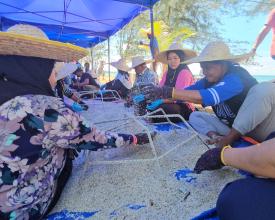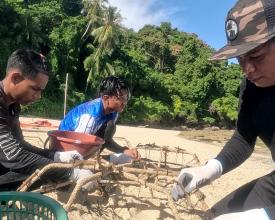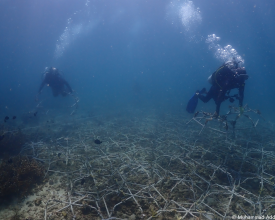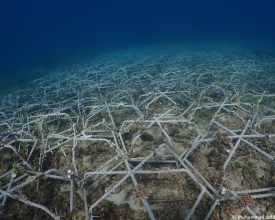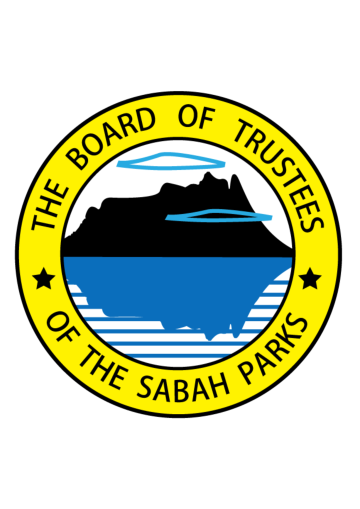
MARRS at Work: Restoring Coral Reefs in Tun Mustapha Park
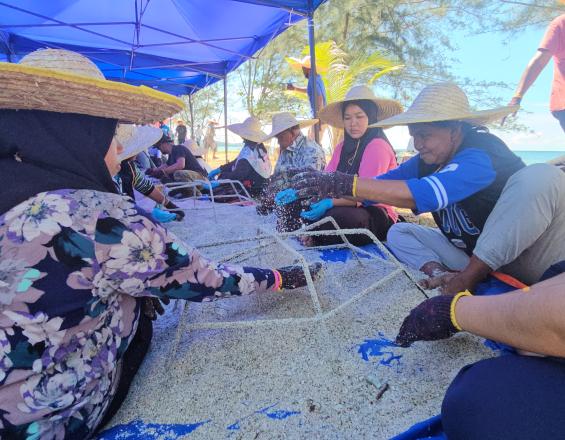
Tun Mustapha Park (TMP) is Malaysia’s largest multi-use marine protected area, supporting diverse coral reef ecosystems and coastal communities that rely heavily on marine resources for their livelihoods. However, like many coral reefs globally, parts of TMP’s reef systems have been severely degraded due to destructive fishing practices, climate change impacts, and other human-induced pressures. To address this, a large-scale coral restoration initiative was introduced using the Mars Assisted Reef Restoration System (MARRS) — an innovative method that uses hexagonal steel structures, called reef stars, to stabilize rubble fields and accelerate coral regrowth. A key strength of this initiative is its emphasis on collaboration and local engagement. The project actively involves local communities and stakeholders fostering a sense of shared responsibility in reef rehabilitation. Through these partnerships, the project has improved coral cover and fish habitat, and strengthened stewardship of marine resources.
Impacts
The coral restoration project in Tun Mustapha Park (TMP), utilizing the Mars Assisted Reef Restoration System (MARRS), has produced significant benefits. As of June 2025, a total of 2,600 reef stars have been deployed across six sites, successfully restoring 2,122 square meters of degraded reef. This restoration work has enhanced marine biodiversity, improved habitat complexity, and strengthened the overall resilience of the reef ecosystem. More than 300 community members have been engaged, including the certification of 13 MARRS divers and the training of 15 citizen scientists for long-term monitoring. With four village groups now managing restoration sites, the project has fostered genuine local ownership and opened new opportunities for women’s participation in marine conservation.
Economically, healthier reefs support fisheries and eco-tourism, contributing directly to local livelihoods. The restored reefs provide better habitats for marine life, with the potential to improve fish stocks for local fishers. Beyond fisheries, communities are now better positioned to develop eco-tourism products such as coral adoption programs and educational tourism (edutourism), offering visitors meaningful, conservation-based experiences. By combining ecological restoration with active community participation, the project has laid the foundation for long-term, sustainable benefits for both people and nature.

